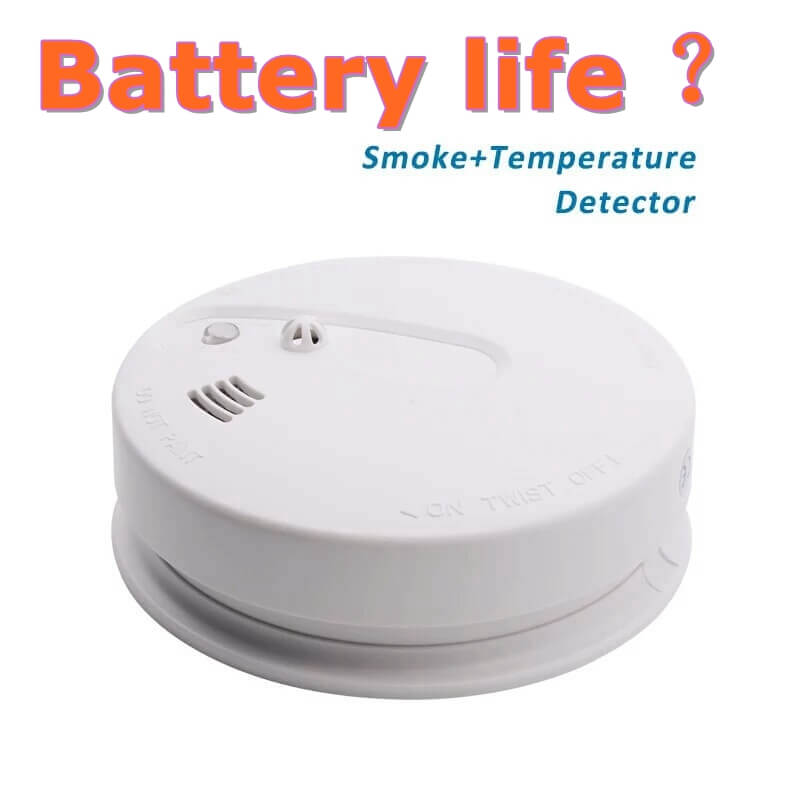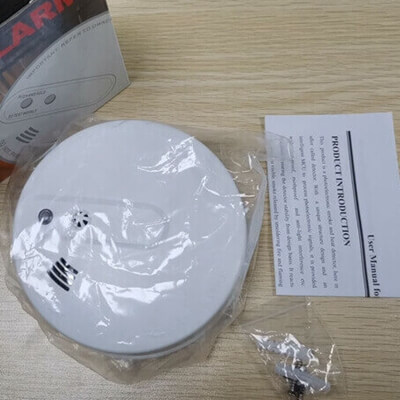A heat detector (we also called heat fire alarm) is a property safety device that responds to extremely high temperatures that indicate the presence of a fire. Heat fire alarm detectors should not be confused with temperature sensors. For the temperature sensor, the main application is to alert the system when the HVAC system in the building has stopped working. But for a heat fire alarm detector, the purpose is to respond to a fire that could cause destruction to the building and the property.

An end user should install smoke detectors over heat fire alarm detectors whenever possible. This is because a smoke fire detector will respond more quickly to a fire than a heat detector. But there are some applications where it is better to use heat detectors. The most common reason is that installing a smoke fire detector in certain areas will most likely lead to false alarms. This is often due to excessive dust or moisture in the area. Another reason is because the room may sometimes contain smoke.
One example of a room that might benefit more from a heat fire alarm detector than a smoke fire detector is a garage. This is because the garages can get very dusty, and the excessive dust might activate a smoke fire detector. The same principle could be applied to attics. For a bathroom, the excessive moisture could cause the same effect. Kitchens are also great candidates for heat fire alarm detectors, as the resulting smoke from cooking food could cause a smoke fire detector to activate. The same is true for rooms where someone might smoke a cigarette or other herbs.
-
 Who is the wired heat detector suitable for ?
Who is the wired heat detector suitable for ?Do you like ?0
Read more -
 What is a mains powered heat alarm ?
What is a mains powered heat alarm ?Do you like ?0
Read more -
 How long do batteries last in wireless smoke and heat detectors?
How long do batteries last in wireless smoke and heat detectors?Do you like ?0
Read more -
 Are there battery powered heat alarms ?
Are there battery powered heat alarms ?Do you like ?0
Read more -
 What needs to be installed in the garage to prevent fire happen?
What needs to be installed in the garage to prevent fire happen?Do you like ?0
Read more -
 What a good high temperature heat detector!
What a good high temperature heat detector!Do you like ?0
Read more








